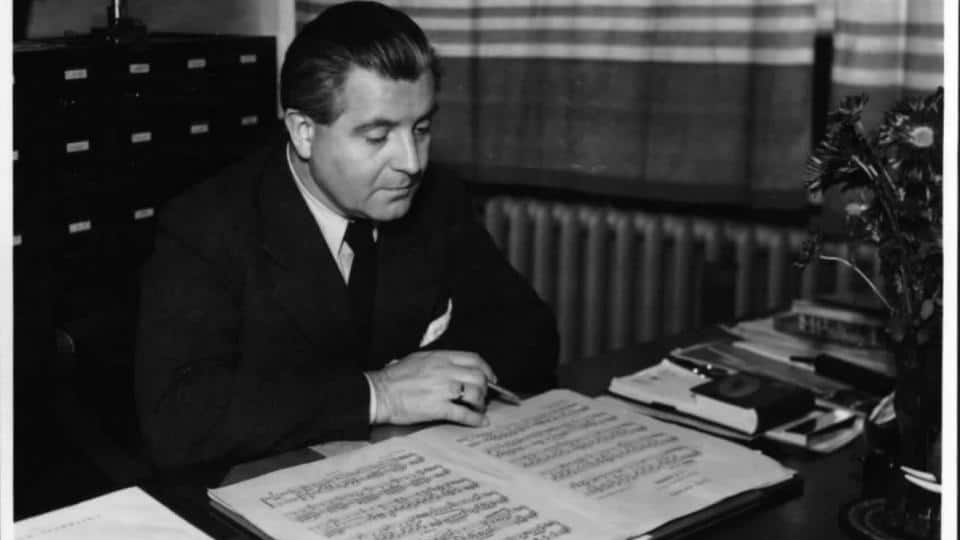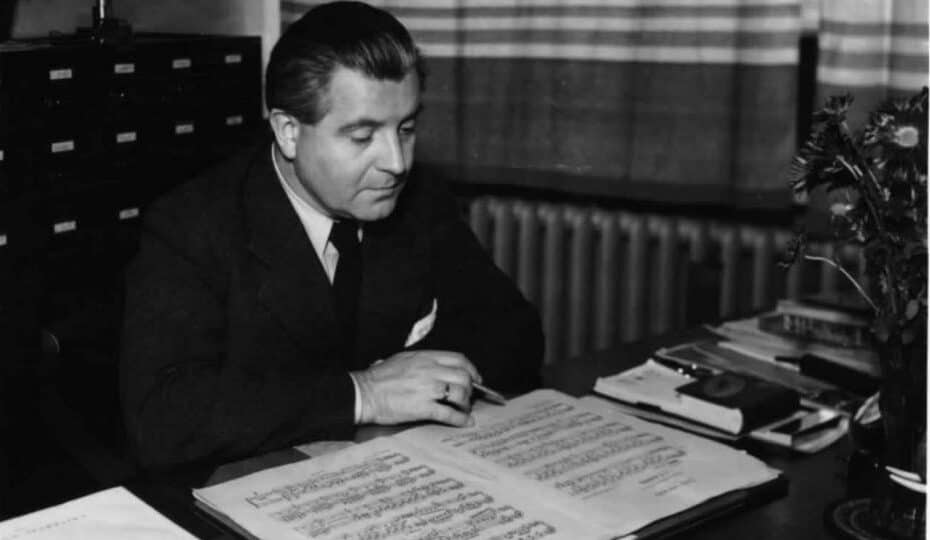The dramaturgy of our November concert “Under the Czech Sky” has been compiled exclusively from works by Czech authors, in addition to settings of important Czech poets or adaptations of folk songs and hymns.

Karel Boleslav Jirák
The main event of this concert is the performance of the fundamental song cycle Rok, Op. 42 (The Year) by the unjustly neglected composer Karel Boleslav Jirák. This year marks the 50th anniversary of his death. During his lifetime, Jirák was one of the most important personalities of Czech music, regularly conducting the Czech Philharmonic Orchestra, with whom he performed not only Czech music but also important works by his contemporaries. He was also a respected specialist in the music of Gustav Mahler. As a conductor, he performed mainly Czech music, both Romantic and contemporary. He was the first musical advisor to the newly founded Radiojournal, and also regularly published articles and reviews of concerts. As a teacher he educated a number of important composers (M. Kabeláč, I. Krejčí, S. Havelka, etc.). His oeuvre is quite extensive, but probably due to his partially forced emigration to the USA after the war, it has fallen into oblivion with only a few exceptions. However, its artistic qualities are undeniable: Jirák did not adopt the musical trends of the time, but tried to find his own – on the borderline of late Romanticism, Modernism, Impressionism and New Seriousness. It is this synthesis that makes his work exceptionally impressive and attractive to listeners, even though it is rarely performed on concert stages. The cycle “The Year” was written in 1941, during Jirák’s peak period, based on the poems of Jaroslav Seifert, and although it bears an expression of sadness and a certain darkness of war, its impressiveness and compositional mastery undoubtedly stand it in the neighbourhood of other important cycles.
Also, Pavel Bořkovec‘s work is not performed on concert stages as often as it deserves, and above all as it was recognized during his lifetime. Bořkovec found favour in neoclassicism, but adapted it in his own unique way. He has often been described as a second Martinů, but without the analogous international career that both world wars and totalitarianism prevented. This year also marks the 50th anniversary of his death. His 1931 song cycle Seven Songs on the Poems of Vítězslav Nezval, Op. 15 is a beautiful example of his gradual liberation from his by then late Romantic expression and inclination towards French neoclassicism.
The second half of the concert features arrangements of folk songs from the pens of Otmar Mácha and Ilja Hurnik, whose births coincidentally marked 100 years this year. The concert will feature Mácha’s remarkable group of folk songs Zpěv Horňácka (Songs of Horňácko) and Hurník’s cycle Silesian Songs, Op. 17.
Last but not least, we will present a cycle of National Songs and Dances from the Těšín region by one of the most important interwar authors – Erwin Schulhoff. This cycle of folk song arrangements was created in 1936, at the time when K. B. Jirák, in order to protect him from the growing anti-Semitism, secured him a job at the Ostrava Radio. This year we commemorated the sad anniversary of Schulhoff’s death in the Wülzburg concentration camp (1942).
The concert will be performed by soprano Irena Troupová, mezzo-soprano Lucie Hilscherová, baritone Roman Janál and pianists Bohumír Stehlík and Jan Dušek.
The concert, unlike most of the previous ones, will take place in the Bohuslav Martinů Hall in the Lichtenstein Palace (HAMU building) on Lesser Town Square in Prague on Sunday 13 November at 7.30 pm.

